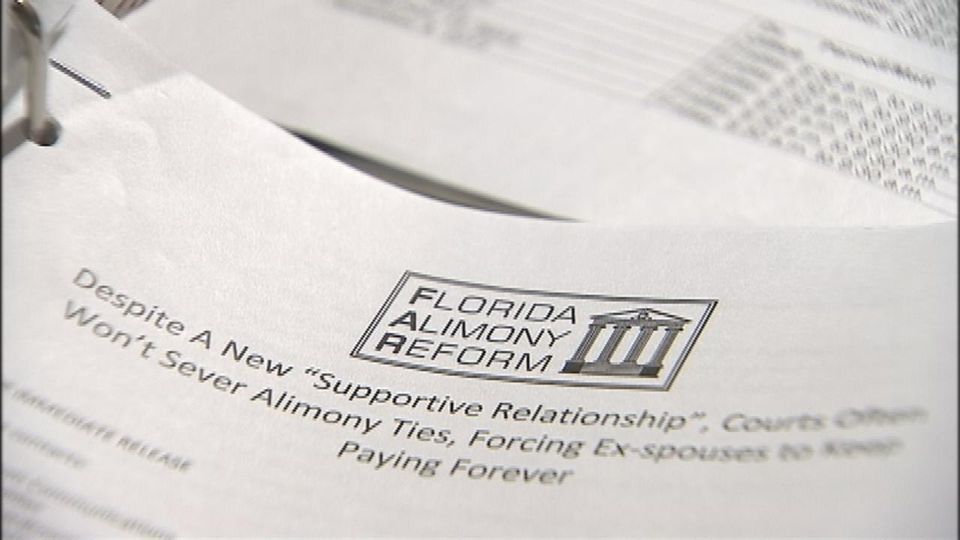
Florida is in the midst of trying to sort out its legislature for alimony reform. There are currently 2 bills(Senate Bill 943 and House Bill 1248) in the houses of the Florida Legislature. Here are the writings for each bill.
Senate Bill 943
Family Law; Requiring the use of specified factors in calculating alimony pendente lite; providing presumptions concerning alimony awards depending on the duration of marriages; providing for imputation of income in certain circumstances; declaring public policy concerning a child’s interests regarding time sharing in custody and support proceedings; prohibiting a court from changing the duration of an alimony award; providing for motions to advance the trial of certain actions if a specified period has passed since the initial service on the respondent, etc.
House Bill 1248
Family Law; Prohibiting a court from using certain presumptive alimony guidelines in calculating alimony pendente lite; providing presumptions concerning alimony awards depending on the duration of marriages; prohibiting a combined award of alimony and child support from constituting more than a specified percentage of a payor’s net income; creating a presumption that approximately equal time-sharing by both parents is in the best interests of the child; providing that a party may pursue an immediate modification of alimony in certain circumstances, etc.
As you can tell, these bills are to provide clarification and certainty to Florida alimony cases. It will be interesting to see how these bills turn out, but they will provide much needed clarity for alimony payors. Many problems have risen from vague alimony legislature and these bills are an attempt to tackle the confusion.
First, these bills will add a calculation for range of time that alimony be paid for a duration from 25% to 75% of the length of marriage in question. This will help alleviate confusion when deliberating the necessary time needed for alimony payments from the payor, and it will also keep alimony time ranges within reasonable limits.
Secondly, these bills will add a calculation for the range of the amount of alimony necessary to be paid by the payor. This calculation is determined by taking the duration of the marriage, the difference in the parties income’, and a multiplier. At this moment in time, the multiplier has been amended and changed as the bills move through the legislative process. Although the multiplier is being changed, the broad scope of this calculation can have profound effects on alimony reform to the state of Florida.
If you live in Florida and are in need of alimony advice, or any legal advice regarding a divorce, contact Mark E. Sawicki P.A. at Sawickilaw.com. We understand the stress involved with handling divorce and alimony payments, and that is why we are the best choice to deal with all the legal paperwork.

